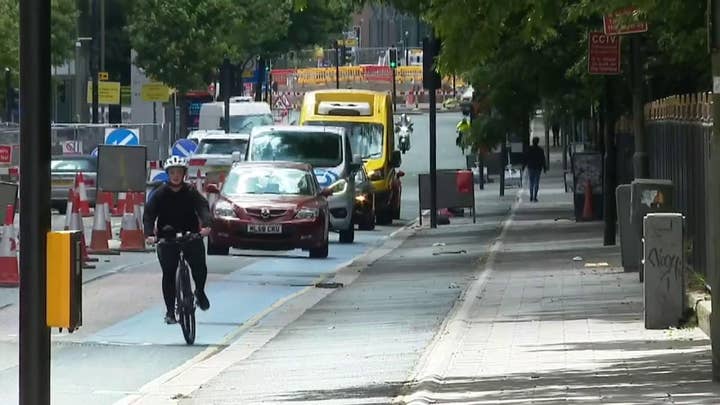Socially-distanced concert held in England amid pandemic
Fox News senior foreign affairs correspondent Greg Palkot reports.
As coronavirus cases in the United Kingdom are rising “rapidly and probably exponentially,” medical experts are raising the nation’s COVID-19 alert level.
On Sunday the country recorded 3,899 new COVID-19 cases and a further 18 deaths; the official death toll from COVID-19 is 41,777 people, while total confirmed cases are about to reach 400,000.
CORONAVIRUS: WHAT YOU NEED TO KNOW
"At the moment, we think the epidemic is doubling roughly every seven days," the UK's Government's chief scientific adviser, Sir Patrick Vallance, said at a briefing held at Downing Street Monday.
He added: "If that continues unabated and this grows, doubling every seven days … if that continued, you would end up with something like 50,000 cases in the middle of October per day. The challenge, therefore, is to make sure the doubling time does not stay at seven days."
England's chief medical officer, Chris Whitty, said citizens will have to rally together to slow down the spread.
"We should see this as a six-month problem that we have to deal with collectively," he said. "It's not indefinite and … science will in due course ride to our rescue. But in this period of the next six months, I think we have to realize that we have to take this collectively very seriously."
CLICK HERE FOR FULL CORONAVIRUS COVERAGE
Those who violate self-isolation orders in the U.K. risk facing steep fines as the country sees a sharp surge in coronavirus infections.
Britain's government said Sunday it is introducing fines up to 10,000 U.K. pounds, or $13,000, for people who refuse an order to self-isolate, which will go into effect on Sept. 28. Britain's Health Secretary Matt Hancock told the BBC that the country is facing a "tipping point" amid a surge of infections.
"If everybody follows the rules then we can avoid further national lockdown," Hancock said Sunday.
The new rule obliges people to self-isolate if they test positive for the coronavirus or are traced as a close contact.
Prime Minister Boris Johnson on Friday said the U.K. is “seeing a second wave” of coronavirus infections -- as he says he wants to keep schools and the economy open as much as possible.
“Obviously, we’re looking carefully at the spread of the pandemic as it evolves over the last few days, and there’s no question, as I’ve said for several weeks now, that we could expect, and we are now seeing, a second wave coming in,” he said.


